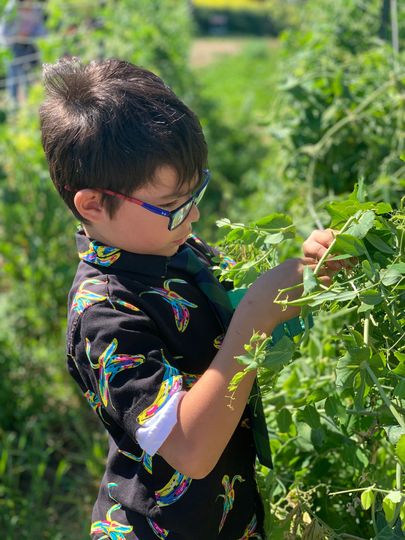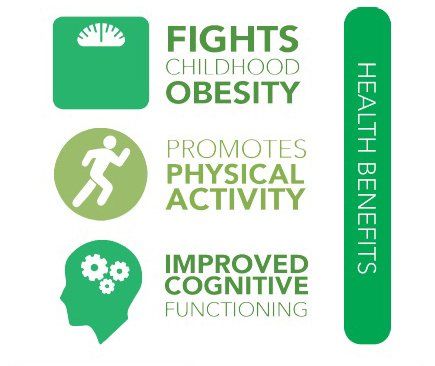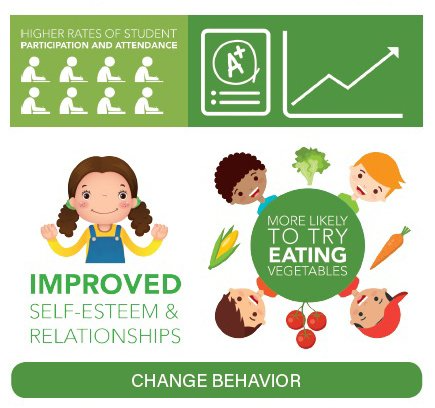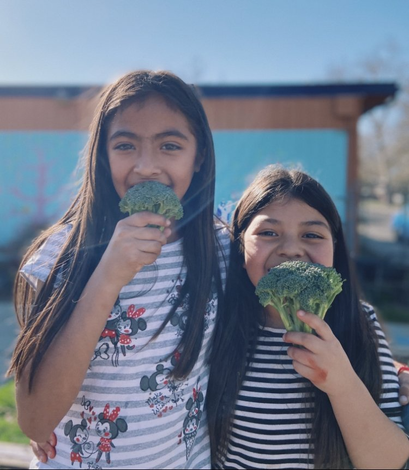Why Edible Gardens
Many families in Yolo County struggle with poverty, hunger, and obesity.
Children living in poverty are more likely to eat processed foods high in salt, sugar and fat, which often leads to becoming both obese and malnourished. As a result, they experience many health problems that inhibit their success in school. Students who live in poverty receive the majority of their daily meals from school provided breakfasts, lunches, and snacks.
Yolo Farm to Fork’s programs engage students by bringing them into direct contact with healthy produce, school gardens, and local farms.
Because kids love to eat what they grow, edible school gardens provide not only healthy outdoor exercise, but also develop kids’ taste for healthy produce and a lifelong skill to grow nutritious, inexpensive food. By working in their school’s edible garden, student gardeners develop a sense of pride in their garden work and the ability to contribute to their school community.
Benefits of School-Based Community Gardens
Academic Achievement
- Students involved with school gardens generally take pleasure in learning and show positive attitudes towards education
- Students who have school garden programs incorporated into their science curriculum score significantly higher on science achievement tests than students who are taught by strictly traditional classroom methods
Physical Health
- Children who are familiar with growing their own food tend to eat more fruits and vegetables, and are more inclined to continue healthy eating habits through adulthood
- Gardening during childhood exposes children to healthy food, moderate exercise, and positive social interactions and can often lead to a lifetime of gardening
Social and Emotional Health
- The school garden serves as a “safe place” for students.Studies show that large numbers of students report “that they feel ‘calm,’ ‘safe,’ ‘happy,’ and ‘relaxed’ in the school garden”
- Children who work in gardens are more likely to accept people different from themselves
- A study of third, fourth and fifth graders showed that students participating in a garden program had increased self-understanding, interpersonal skills, and cooperative skills when compared to non-gardening students
School and Community Benefits
- Teachers who worked in schools with garden programs had higher workplace morale and increased “general satisfaction with being a teacher at that school”
- 68 percent of the students shared what they were learning with family and friends not directly connected with the school garden program.” This has the potential for spreading the benefits to a much larger community.
- The American Community Gardening Association attributes community gardens to an increase in home prices for residences near the garden, a reduction in violent and non-violent crime in the neighborhood, and an overall increase in the feeling of safety
- 95 percent of community gardeners give away some of the produce they grow to friends, family and people in need; 60 percent specifically donate to food assistance programs
- In a survey of community gardeners, 80 percent gardened as children, suggesting that gardening at a young age has a long-reaching impact
- More than 50 percent of community gardeners meet national guidelines for fruit and vegetable intake, compared to 25 percent of non-gardeners






